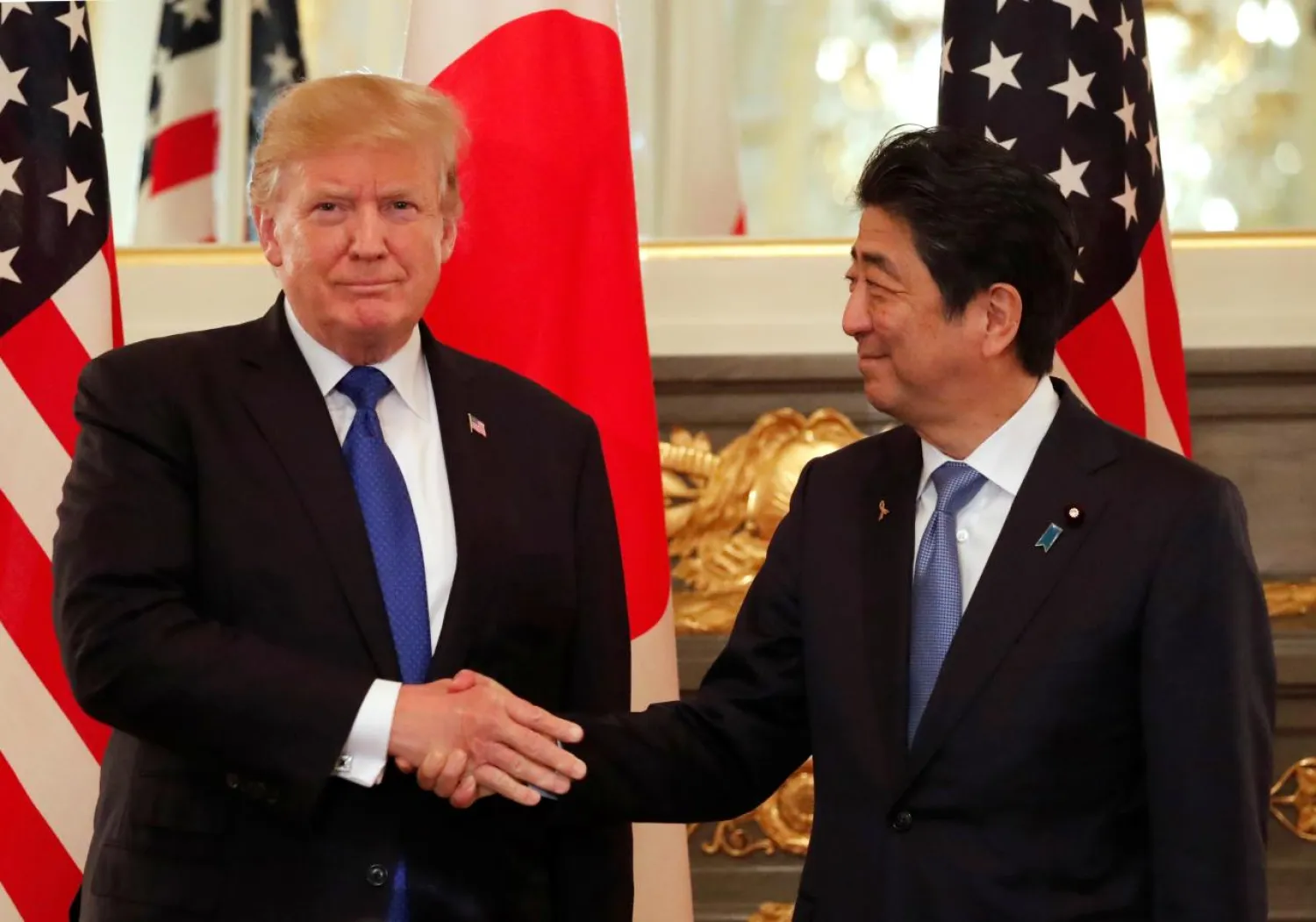The time for "strategic patience" with North Korea is over, US President Donald Trump said Monday as he declared Pyongyang "a threat to the civilized world.”
Trump has signaled in the past that Washington could look beyond a diplomatic solution to the North's nuclear weapons ambitions, and consider military intervention.
The North's nuclear program is "a threat to the civilized world and international peace and stability," Trump told reporters on the second day of a trip to Asia.
"The era of strategic patience is over," he declared alongside his host, Japanese Prime Minister Shinzo Abe, denouncing efforts by the Obama administration to manage Pyongyang.
"Some people say my rhetoric is very strong but look what has happened with very weak rhetoric in last 25 years," said Trump at the news conference.
Abe, whose own nation has seen North Korean missiles fired over its northern island amid threats by Pyongyang to "sink" it into the sea, backed the bullish stance.
"We always support President Trump's policy that all options are on the table," in reining in North Korea over its provocative actions, he said.
Abe announced Japan will freeze the assets of 35 North Korean groups and individuals as a new sanction.
The United Nations has adopted multiple rounds of sanctions against the reclusive North, the most recent in September following its sixth nuclear test and a flurry of missile launches.
The president arrived in Asia with tensions over North Korea at fever pitch, as US bombers fly sorties over the Korean peninsula and concerns mount that Pyongyang might stage another nuclear or missile test.
Trump began his marathon trip in belligerent form, warning on Sunday that "no dictator" should underestimate US resolve, a clear swipe at North Korea and its leader Kim Jong-Un.
However in a pre-recorded interview broadcast on US TV he held out the prospect of talks with Pyongyang, saying he would "certainly be open" to meeting Kim.
"I would sit down with anybody," he said. "I don't think it's strength or weakness, I think sitting down with people is not a bad thing.”
"So I would certainly be open to doing that but we'll see where it goes, I think we're far too early,” Trump said on the "Full Measure" show.
Following his meeting with Abe Monday, Trump said he was committed to achieving "free, fair, and reciprocal" trade with Japan to lower the US trade deficit.
He also said he wanted to work with Japan to "sort out" trade problems with the country.









